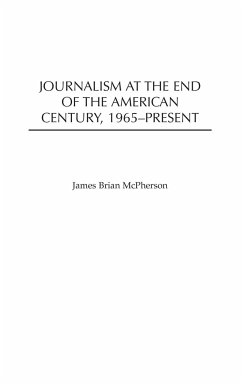
The Cold War Guerrilla
Jonas Savimbi, the U.S. Media and the Angolan War
Versandkostenfrei!
Versandfertig in 1-2 Wochen
87,99 €
inkl. MwSt.

PAYBACK Punkte
44 °P sammeln!
This is the first book on U.S. policy in Angola during the 1980s. Elaine Windrich shows how the Reagan administration and U.S. media inflated the importance of Jonas Savimbi and helped inflame the civil war in Angola. Pinpointing media strengths and weaknesses in shaping and in reporting on a major crisis in Africa, this ground-breaking work analyzes Savimbi as a cold war guerrilla, the role of different media segments in the dirty war in Angola, and the right-wing influence of the Reagan and Bush administrations into the 1990s. This moving and well-researched account, providing insights into ...
This is the first book on U.S. policy in Angola during the 1980s. Elaine Windrich shows how the Reagan administration and U.S. media inflated the importance of Jonas Savimbi and helped inflame the civil war in Angola. Pinpointing media strengths and weaknesses in shaping and in reporting on a major crisis in Africa, this ground-breaking work analyzes Savimbi as a cold war guerrilla, the role of different media segments in the dirty war in Angola, and the right-wing influence of the Reagan and Bush administrations into the 1990s. This moving and well-researched account, providing insights into how the U.S. media covers African and Third World issues, is a good text for foreign correspondents and for courses dealing with U.S. foreign policy, journalism and communications, and with Africa. The image of the Angolan rebel leader as a freedom fighter is shown to be a product largely of the U.S. media and the collaboration of right-wing lobby groups closely linked to the Reagan and Bush administrations. The resurrection of Savimbi, who represented a lost cause after his defeat in the Angolan civil war in 1976, but who was kept alive by South African support, was due to his adoption by the Reagan administration as an ally in the crusade against Third World governments supported by the Soviet Union. The study shows how the mainstream media tended to follow the administration's agenda and right-wing views in portraying Savimbi as an ally. Windrich also explains how the Bush administration and the media have continued to support Savimbi and his rebel movement.












